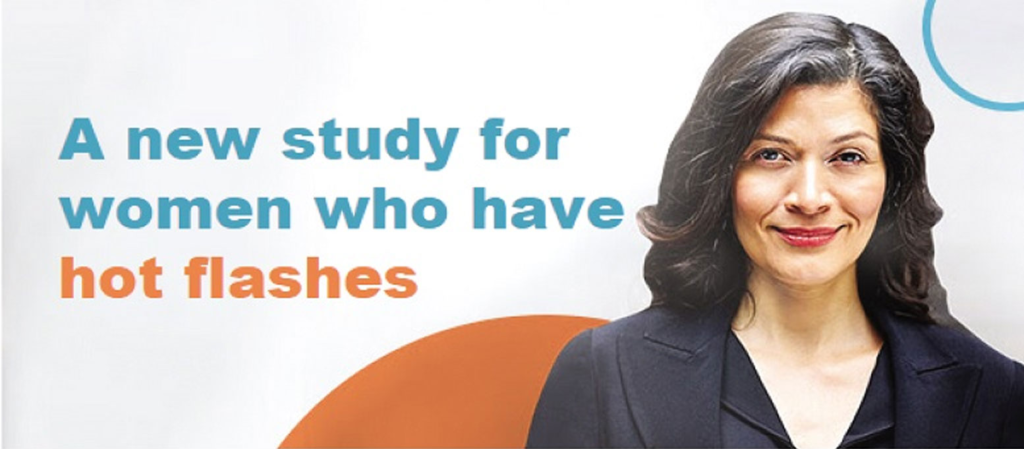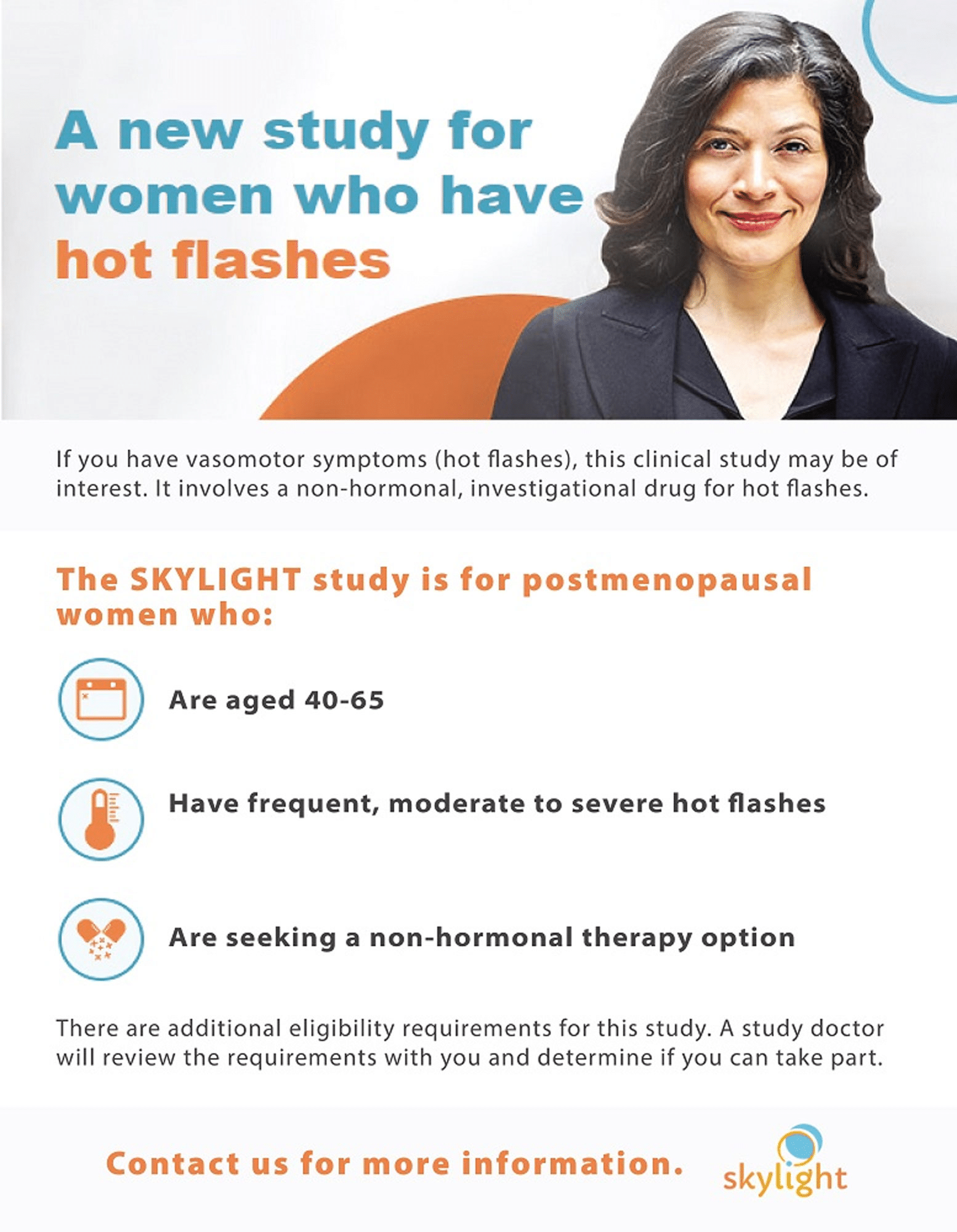Non-Hormonal Hot Flash

Do you or a loved one suffer from moderate to severe vasomotor symptoms (hot flashes) associated with menopause? Then you may be interested in the SKYLIGHT clinical study. It will test how well an investigational drug works and how safe it is. Dial (937) 771-5110 to speak with our office and determine whether you are a candidate for treatment!
Who is this clinical study for?
“This study is for women in menopause with hot flashes. Menopause, a normal part of aging, is the time of a woman’s last period. Hot flashes can interrupt a woman’s daily life.
The purpose of this study is to find out how safe it is for these women to take fezolinetant long term (up to 52 weeks). To do that, the study will look at the number and severity of the “adverse events.” Those are the side effects that study participants have while they are in the study.
The study treatments are fezolinetant low dose (1 tablet of fezolinetant and 1 placebo tablet) once a day, fezolinetant high dose (2 tablets of fezolinetant) once a day or placebo (2 tablets) once a day. (Placebo is a dummy treatment that looks like medicine but does not have any medicine in it.)
Women in this study will be picked for 1 of the 3 study treatments by chance alone. The study participants will take study treatment for 52 weeks.
This study is “double-blinded.” That means that the study participants and the study doctors do not know who takes which of the study treatments (fezolinetant low dose, fezolinetant high dose or placebo).
At weeks 2 and 4 and then once a month, the study participants will go the hospital or clinic for a check-up. They will be asked about medications, side effects and how they feel. Other checks will include physical exam and vital signs (heart rate, temperature and blood pressure). Blood and urine will be collected for laboratory tests. At some study visits, study participants will complete questionnaires that are about their quality of life. At the first and last study visits, they will have a dual-energy x-ray absorptiometry (DXA for short) test done. To measure bone loss in the hips and spine, DXA creates pictures of the inside of these areas with low-dose x-rays. (The dose is approximately one-tenth of the amount of a normal chest x-ray.) Study participants who still have their uterus will have 2 more tests done at the first and last study visits. One of the 2 tests is endometrial biopsy. This test involves removing a small amount of tissue from the inside lining of the uterus. The tissue is then checked under a microscope. The other test is transvaginal ultrasound. It uses sound waves to create pictures of the organs in the pelvis. The sound waves are transmitted by a probe (transducer), which is placed inside the vagina. Study participants may have a screening mammogram done at the first and/or last study visit. A mammogram is an x-ray picture of the breasts used to screen for breast cancer. Study participants who did not have this test done in the last 12 months will have it done at the first study visit. They will have it done at the last study visit if they are due for their screening mammogram and their own doctor agrees.
The last check-up at the hospital or clinic will be 3 weeks after the last dose of study treatment.” (https://www.astellastrials.com/clinical-trials/skylight/)
What can you expect from being in this study?
Being part of the study takes time and effort for the person in it and their caregiver. You may:
- Be in the study for up to 13 months
- Need to travel to the closest clinical trial site location every 4 or 6 weeks
- Receive pills you take by mouth once or twice daily
- Need blood taken or other tests such as heart monitoring. This helps researchers learn how the medicine is working
- Receive placebo. Placebo is something that looks like the drug but does not contain any drug
This drug is experimental. Because of that, not all risks are known before starting a clinical trial. People who are in the study may stop at any time.
Call HWC Research Center To Volunteer For Our Hot Flash Clinical Study!
To find out if you are an eligible candidate for the study, please visit https://www.astellastrials.com/clinical-trials/skylight/#eligibility today. Or, you can give us a call at (937) 771-5110 and speak with our knowledgeable staff. Our skilled doctors serve Englewood and the surrounding areas of Ohio.







